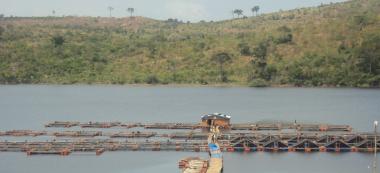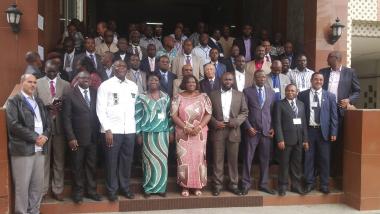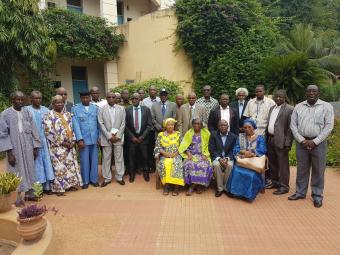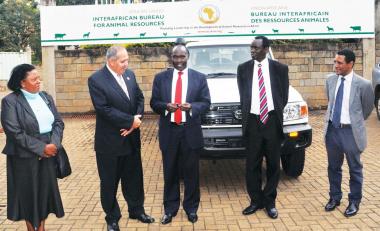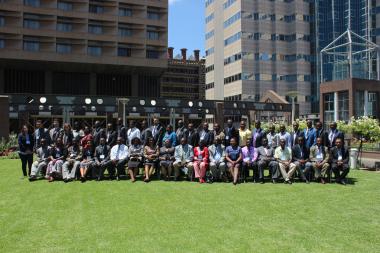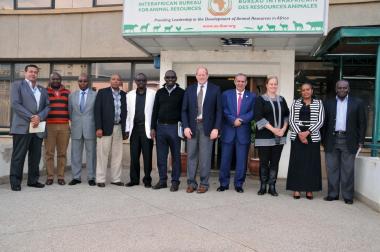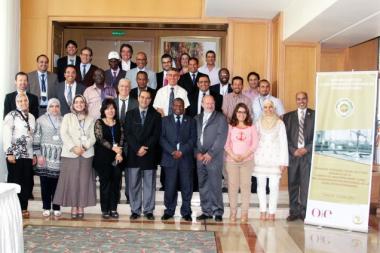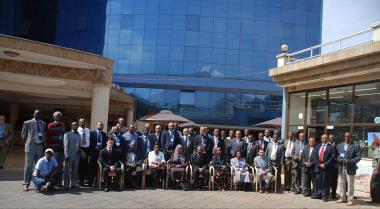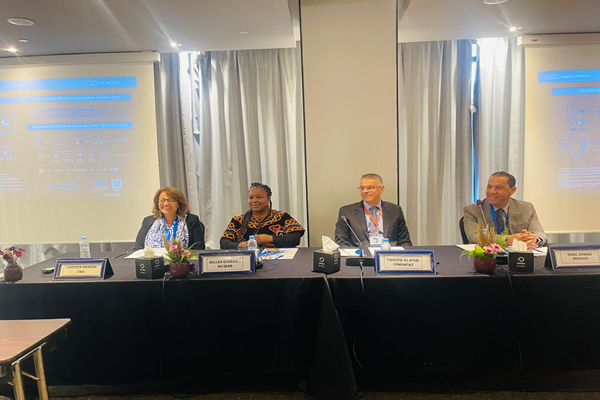
October 28-29, 2024, Casablanca, Morocco
The 7th General Assembly of the Africa Platform for Regional Institutions in Fisheries, Aquaculture, and Aquatic Systems (APRIFAAS) has commenced in Casablanca, Morocco, drawing regional and global stakeholders to a forum dedicated to advancing sustainable fisheries and aquatic biodiversity conservation in Africa. Themed “The Global Instruments on Biodiversity: Opportunity for Enhancing Regional Intersectoral Cooperation and Coordination,” the assembly brings together representatives from the Government of Morocco the African Union, AUDA-NEPAD, regional economic communities, Representatives of COEs – Rhodes University and University of Cape Coast, intergovernmental organizations, and environmental advocates to leverage global biodiversity frameworks for intersectoral action in African aquatic systems, representatives of Regional Fisheries Bodies and other Regional Organizations.
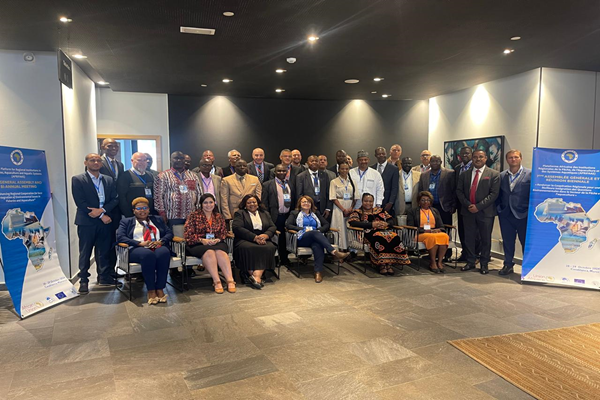
The assembly began with Welcome Remarks by Ms. Hellen Guebama, representing the AU-IBAR Director, Dr. Salih. The speech emphasized Africa’s rich biodiversity, noting that Africa holds a quarter of the world’s biodiversity and the largest intact populations of large mammals. However, he warned that biodiversity faces growing threats, including illegal, unreported, and unregulated (IUU) fishing and climate change.
Highlights were made of AU-IBAR's efforts, funded by SIDA, to conserve aquatic biodiversity as part of Africa's Blue Economy Development Agenda, which aligns with the African Union’s Agenda 2063. Additionally, AU-IBAR’s work on the second phase of the EU-funded Fisheries Governance Project is improving food security and wealth creation by supporting African Union Member States (AU MS) in aligning with key international biodiversity instruments. Findings from a recent AU-IBAR report, were shared, which revealed that while most AU MS are aware of global and regional biodiversity instruments, their ratification and implementation rates are low, particularly for global and regional agreements. The creation of new financing frameworks, regional technical support units, and capacity-building initiatives to support AU MS in meeting biodiversity and Blue Economy goals were recommended.
The importance of intersectoral coordination for Africa’s food security and sustainable development, focusing on gender inclusion, poverty reduction, and job creation were underscored, including the reiteration of AU-IBAR's commitment to supporting Regional Economic Communities (RECs), Regional Fisheries Bodies (RFBs), and AU MS in achieving sustainable outcomes for Africa's fisheries, aquaculture, and Blue Economy, calling for collaborative efforts with development partners to mobilize resources and technical support for Member States. Dr Bernice Mclean of AUDA-NEPAD and Ms. Faouzia Chakiri from Union du Maghreb Arabe (UMA) followed with insights on advancing cooperative efforts to protect Africa's diverse aquatic ecosystems. Ms Chakiri noted "For Africa, fostering intersectoral cooperation offers a significant opportunity to maximize the impact of fisheries and aquaculture policies while integrating sustainable development goals. Key areas for future cooperation include strengthening regional capacity, promoting research and innovation, mobilizing adequate funding, and prioritizing inclusivity and equity for local communities, particularly women and youth."
Mr. Taoufik Elktiri, the Executive Secretary of ATLAFCO, delivered the Official Opening Statement, emphasizing the assembly’s potential to reinforce Africa's unified stance on biodiversity challenges within the global arena.
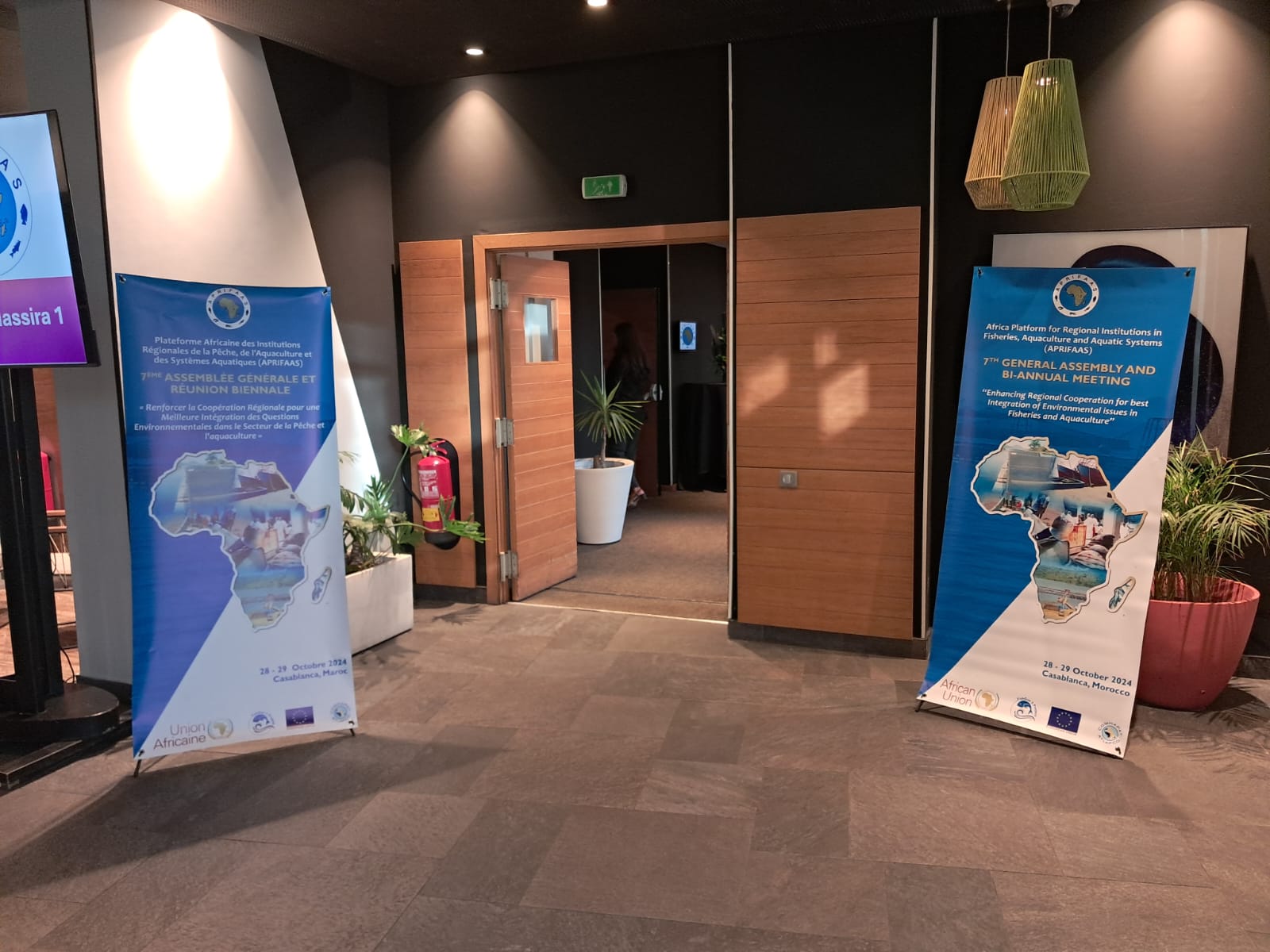
Technical Sessions: Addressing Biodiversity and Aquatic System Management
The assembly’s technical sessions aim to strengthen cooperation among regional institutions, with a focus on implementation and sharing updates on key initiatives:
- Technical Session 1: Setting the Scene
Chaired by APRIFAAS, this session will feature an update on APRIFAAS activities by Mr. Mohamed Sadiki (ATLAFCO) and a report on the sixth general assembly’s outcomes by APRIFAAS rapporteurs (FCWC/COMESA).
- Technical Session 2: Implementing Recommendations and Enhancing Information Exchange
Led by AU-IBAR’s Mrs. Patricia Lumba and ATLAFCO’s Mr. Mohamed Sadiki, this session covered ongoing implementation efforts, media initiatives by the Media Observatory in Fisheries, the APRIFAAS knowledge sharing platform and microsite, a member directory, and event coordination to improve sector-wide information exchange.
- Technical Session 3: Facilitating Stakeholder Dialogue and Harmonization of Programs
Mr. Delvis Fortes (AU-IBAR) will lead this session, with Mr. Abdou Khadir Diakhate (SRFC) highlighting REC and RFB collaboration, and AU-IBAR’s Hellen Guebama and Simon Owani discussing projects like FishGov2 and the Aquatic Biodiversity Project.
- Technical Session 4: Leveraging Global Instruments for Biodiversity
Chaired by Mr. Mohamed Sadiki, this session explored African adoption of global biodiversity frameworks, with AU-IBAR’s Eric Nadiope providing an overview, and Mr. Kwame Mfodwo discussing the Biodiversity Beyond National Jurisdiction (BBNJ) and CITES for sustainable species use.
Strengthening Africa’s Presence on the Global Stage
Day two of the assembly is expected to focus on enhancing Africa's representation in international forums. Chaired by Ms. Hellen Guebama, the session will see updates from regional organizations, such as UMA, SADC, IGAD, and COMESA, who will provide overviews of their current efforts in adopting and implementing global environmental agreements.
Mr. Kwame Mfodwo will highlight AU-IBAR's strategy for amplifying African voices in these forums, encouraging member states to advocate for regionally relevant policies and to utilize global instruments in ways that resonate with Africa’s unique ecological and economic landscapes.
Collaborative Working Groups and Strategic Recommendations
Participants will discuss key actions that support member states in adopting and implementing biodiversity-focused international agreements. Participants will propose mechanisms to enhance the integration of environmental priorities within fisheries and aquaculture sectors. The Plenary Session will consolidate these discussions, identifying actionable steps to harmonize environmental practices across the sector. During the Closing Session, the election of a new Bureau will take place, alongside plans for the next APRIFAAS assembly, solidifying commitments to cooperative strategies that promote sustainable management of Africa's aquatic resources. Closing remarks by Mr. Rafik Nouaili and Mr. Simon Owani (AU-IBAR/AUDA-NEPAD) will highlight the success of the assembly in fostering a unified African response to biodiversity and aquatic conservation challenges.
This assembly will establish a strong foundation for intersectoral cooperation, reinforcing Africa’s leadership in shaping policies for sustainable fisheries and aquatic ecosystem conservation while amplifying its voice in the global biodiversity dialogue.

